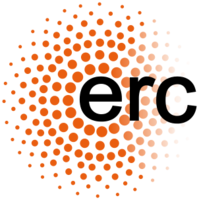On September 8 the results of the 2016 ERC Starting Grants have been published by the European Research Council.
The ERC grants are awarded under the “excellent science” pillar for frontier research of Horizon 2020, the EU’s research and innovation program.
I myself have been honored with a grant to develop the “Processing Citizenship” project.
As Carlos Moedas, European Commissioner for Research, Science and Innovation, has stressed, ERC grants innovative ideas by also providing the financial means (i.e., around 1,5 M euro per project) to “create quality jobs for more research staff who wish to work on the frontiers of science”. In other words, ERC grants are not only a personal recognition, but they call grantees to new responsibilities, not only towards the scientific community at large, but especially towards a new generation of researchers. This is an important inter-generational aspect of which we grantees should be aware.
This turns even truer when one considers that ERC grants – together with the Marie Curie actions – are the only European grants for frontier research (i.e., non industry- or policy-led). As the president of the ERC Jean-Pierre Bourguignon has recalled, “It is pivotal to keep scientific quality as the one and only selection criterion, and to trust researchers to choose significant topics, without imposing any demands on what to be explored. Giving top researchers free reign to follow their scientific curiosity opens the way to real breakthroughs”. Here we are: will we (still relatively young) grantees be able to follow this mix of curiosity, freedom and excellence, while at the same time with them nurturing the next generation of researchers?
I feel this is a key question, that poses on our shoulders heavy responsibilities. At the same time, those who are granted similar funding are rarely acting in a vacuum. I myself was supported by lovely, sharp and forward-looking colleagues at my university, and by an ever present EU grant office. Also colleagues and friends at other universities and countries were convinced by my ideas to the point of organizing preparatory events to rehearse the interview I went through in Brussels. Finally, commission members in Brussels spent 3 days packed in hot tiny rooms, with the only goal of collegially decide which projects and persons could have the best potential to contribute to scholarly, scientific and intellectual advancement.
In other words, while ERC grants are awarded to individuals (who might inevitably finish up to be object of envy), ERC outcomes are a real feast for scientific communities, who in the whole process are called to bring out their most generous thrust. In this sense, ERC grants are performative of a collegiate, forward-looking, disinterested scholarly community. This is refreshing, showing that research, teaching and scholarship do still have important values to contribute to society. This is not little thing, after 30 years of delegitimation of knowledge institutions and practices.
